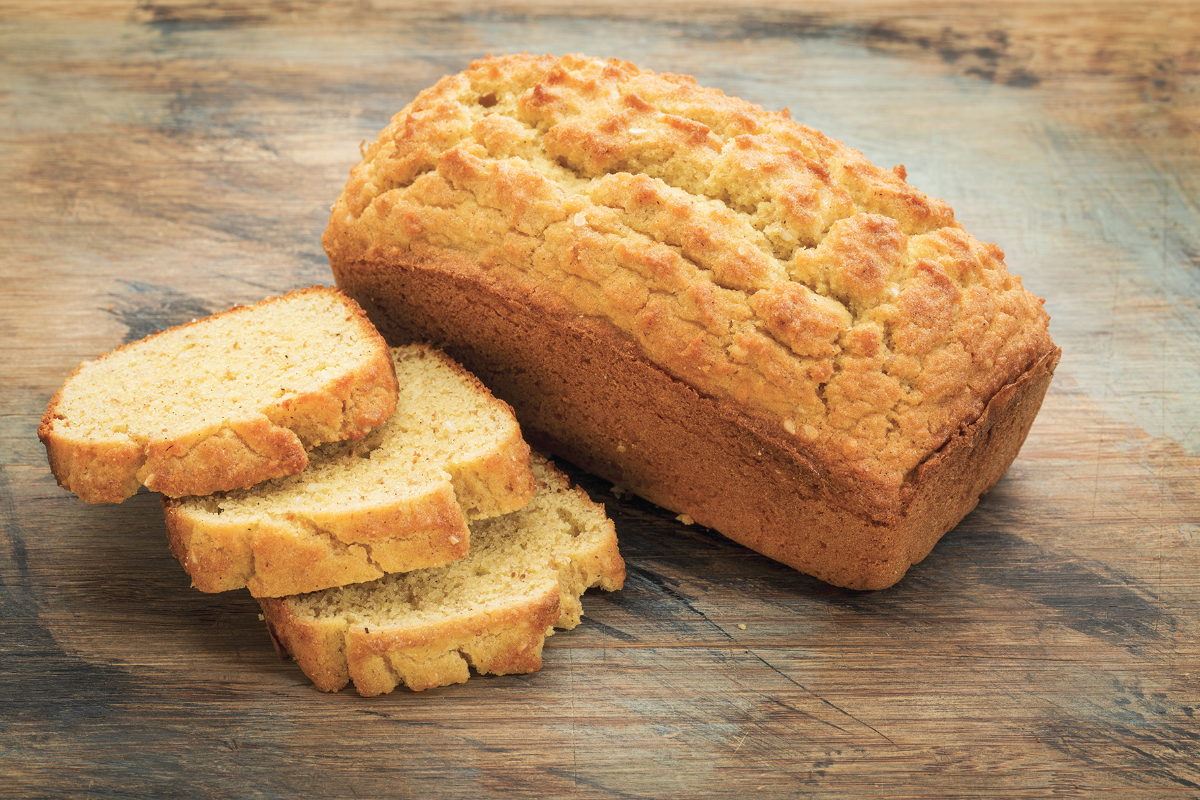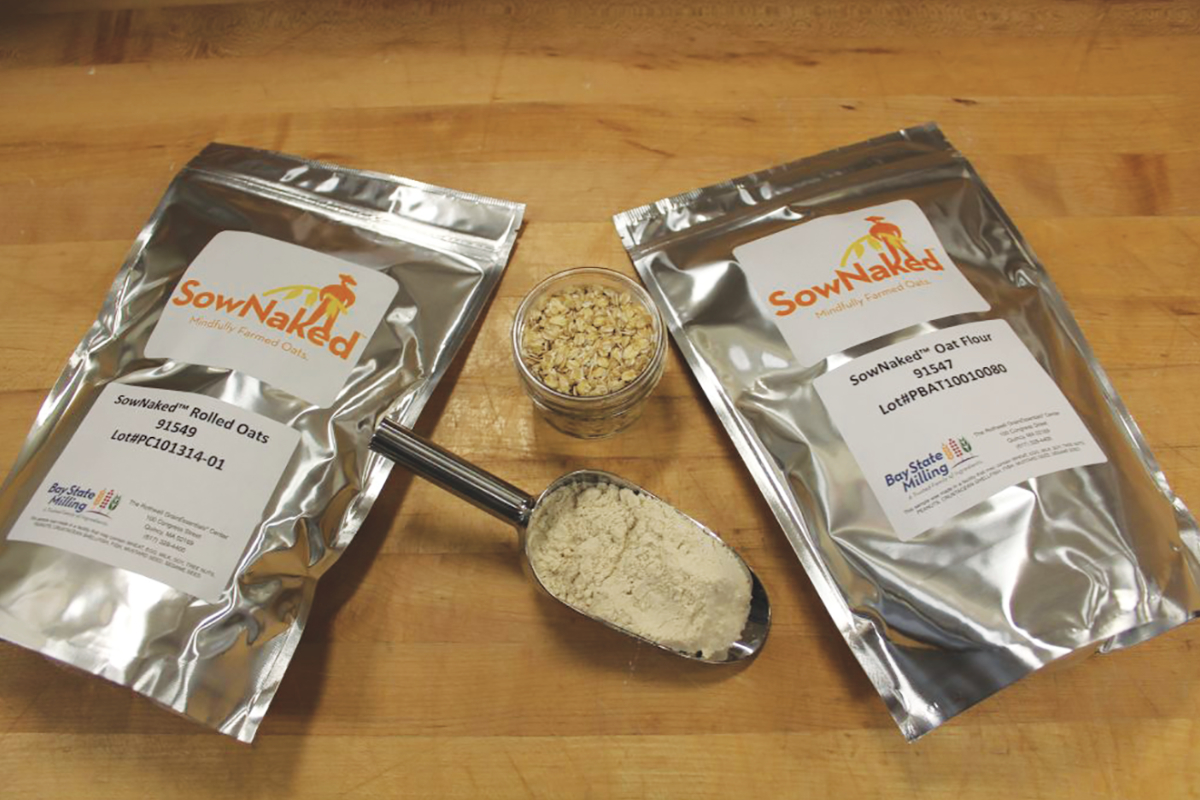KANSAS CITY — Texture, taste and nutrition continue to improve in gluten-free products. Chickpeas, oats and ancient grains are some of the ingredients featured in those improvements.
About 3 million Americans must avoid gluten because they have celiac disease, according to Beyond Celiac, Ambler, Pa., which seeks to drive diagnosis, advance research and accelerate the discovery of new treatments and a cure for celiac disease. Other people may seek gluten-free foods because they are gluten intolerant, meaning they have trouble digesting gluten. Grand View Research, Inc., San Francisco, estimated gluten-free products market revenue in the United States at $5,937.5 million in 2014 and $6,732.9 million in 2015.
Reaching that market means food manufacturers need to create gluten-free products that meet similar expectations to their conventional counterparts in quality and nutrition.
Artesa chickpea flour delivers a taste profile, mouthfeel and texture characteristics that are similar to wheat flour characteristics, according to Nutriati, Inc. and its commercialization partner, PLT Health Solutions, Morristown, N.J. The flour has a fine particle size, neutral taste and neutral white color, according to the companies. Fractionization, which removed much of the oil, cleaned up the flavor profile.
The flour has a protein content of 12% or more, which is twice the protein content of some other gluten-free flours. Artesa chickpea flour contains resistant starch and is Non-GMO Project verified.
 “A common challenge for gluten-free bread manufacturers is to produce a full loaf that has consistent crumb, structure and texture without collapse of the loaf or the development of large air pockets,” said Michael Spinelli, co-founder and chief innovation officer for Nutriati, Inc. “Artesa is able to solve these issues by enabling the production of consistent air cells, better crumb and mitigating the collapse of the product during baking and cooling.”
“A common challenge for gluten-free bread manufacturers is to produce a full loaf that has consistent crumb, structure and texture without collapse of the loaf or the development of large air pockets,” said Michael Spinelli, co-founder and chief innovation officer for Nutriati, Inc. “Artesa is able to solve these issues by enabling the production of consistent air cells, better crumb and mitigating the collapse of the product during baking and cooling.”
Artesa chickpea flour also has been shown to work in pasta.
“The functional characteristics of Artesa chickpea flour are ideal for difficult to formulate gluten-free products of which pasta is one,” Mr. Spinelli said. “Artesa chickpea flour excels in the production of extruded products like pasta and can be used in non-allergenic, egg-free formulations while maintaining mouthfeel.
“It is a unique material due to the Nutriati production process. It adds the structure of gluten found in wheat flour. It has elasticity similar to some of the best semolina flours for pasta applications. It also helps improve mouthfeel in a manner of a modified food starch where it can be used to replace dairy or eggs as well as gluten. This leads to the ability to create high quality vegan products.”
In 2013, Mr. Spinelli and Richard Kelly, chief executive officer, founded Nutriati, which focuses on the research, development and commercialization of plant-based ingredients.
The market debut of Artesa chickpea flour earlier this year marked the entry of PLT Health Solutions into the gluten-free category. The company will feature Artesa chickpea flour at its booth during IFT18, the Institute of Food Technologists’ annual meeting and expo July 15-18 in Chicago. Gluten-free crackers will contain Artesa chickpea flour, quinoa and flax.
Interest in oats accelerates
Gluten-free SowNaked oats won a 2018 Nexty Award for best new ingredient at Natural Products Expo West in March in Anaheim, Calif. Nexty awards are given to products that display innovation, integrity and inspiration and help forward the work of the natural products industry to deliver more healthful, trusted and sustainable products.
 Montana Gluten Free Processors, L.L.C., Belgrade, Mont., offers the SowNaked oats, which test less than 3 parts per million (p.p.m.) of gluten. Any oats that test over 5 p.p.m. are rejected. The U.S. Food and Drug Administration has ruled that for ingredients to qualify as gluten-free, they must contain less than 20 p.p.m. of gluten.
Montana Gluten Free Processors, L.L.C., Belgrade, Mont., offers the SowNaked oats, which test less than 3 parts per million (p.p.m.) of gluten. Any oats that test over 5 p.p.m. are rejected. The U.S. Food and Drug Administration has ruled that for ingredients to qualify as gluten-free, they must contain less than 20 p.p.m. of gluten.
Montana Gluten Free in 2003 established a gluten-free oat purity protocol that includes a visual check for gluten-containing grains in the field by farmers, an analysis from an inspector, handling requirements and testing. Before SowNaked oats are planted, the fields must be absent of gluten-containing grains such as wheat, rye and barley for four years.
Working with the farmers of Montana Gluten Free, Bay State Milling Co., Quincy, Mass., has brought SowNaked oats to market, said Donna Reiser, marketing communications manager for Bay State Milling.
“They not only deliver more than 20% protein and less carbohydrates, they are purity protocol gluten-free,” Ms. Reiser said of SowNaked oats. “This means they are grown, harvested and processed within a closed system traceable back to the seed. Because they’re hull-less, they require less processing, which is kinder to the environment and delivers a greater return to the farmer.”
Last year Bay State Milling acquired a stake in MGM Seed & Grain, a specialty oat miller in Saskatoon, Sask.
“MGM has recently completed construction of a state-of-the-art gluten-free oat processing facility providing a full range of product, including flakes, flour, and steel cut oats with product certified to less than 10 p.p.m.,” Ms. Reiser said. “The grower base supports organic and certified transitional products along with a managed gluten-free crop rotation.”
 Bay State Milling also offers ancient grains. Under the BeneGrain name, Bay State Milling is sprouting ancient grains such as amaranth, quinoa, buckwheat, sorghum and specialty oats. Through the sprouting process, nutrients are made more available for absorption by the body and flavors mellow.
Bay State Milling also offers ancient grains. Under the BeneGrain name, Bay State Milling is sprouting ancient grains such as amaranth, quinoa, buckwheat, sorghum and specialty oats. Through the sprouting process, nutrients are made more available for absorption by the body and flavors mellow.
The company is preparing to move into a larger facility in Woodland, Calif., that will support production of gluten-free items with expanded milling operations and segregated storage, Ms. Reiser said.
“In Woodland, construction plans incorporate design elements to deliver a clean-room environment separate from the remainder of the facility,” Ms. Reiser said. “Access is limited to specially trained associates. The clean room will also be the home of the company’s Simply Safe micro-reduction capability, which delivers a validated 5-log reduction on relevant pathogens, which is critical for gluten-free applications that do not utilize a kill-step.”
Bay State Milling is one of several ancient grain suppliers who will exhibit at IFT18.
Western Foods, based in Woodland, specializes in gluten-free and allergen-free grains, including rice, millet, sorghum, quinoa, non-G.M.O. corn, flaxseed, oats, buckwheat and teff. The company has an accredited gluten-free facility that also is certified organic and Non-GMO Project verified.
The Annex by Ardent Mills, a new business unit from Denver-based Ardent Mills, markets ancient grains. The Annex by Ardent Mills seeks to explore and provide food companies and food service operators with “next” grains and unique plant-based ingredients. Ancient grains in The Annex portfolio are amaranth, millet, buckwheat, teff, sorghum and Ardent Mills Great Plains Quinoa. Heirloom wheats such as emmer, einkorn, spelt and White Sonora are in the portfolio as are rye, barley and pulses. The ingredients are available in a variety of traditional forms like whole berries, flours and flakes as well as unique formats, including mixes, blends, I.Q.F. (individual quick frozen) and crisps.
Also at I.F.T., Grain Processing Corp., Muscatine, Iowa, will feature gluten-free barbecue chicken flatbread sandwiches made with the company’s Pure-Dent B700 IP, a non-G.M.O. unmodified corn starch.




